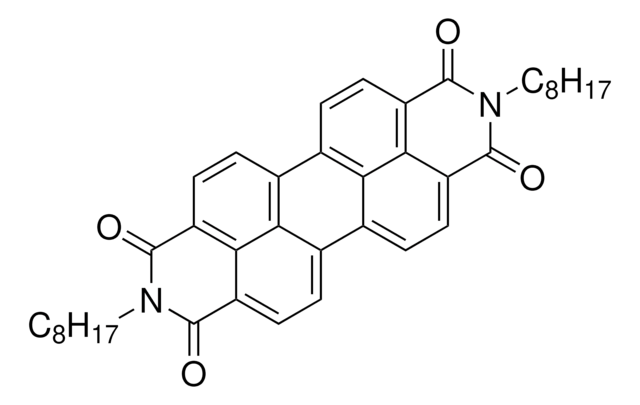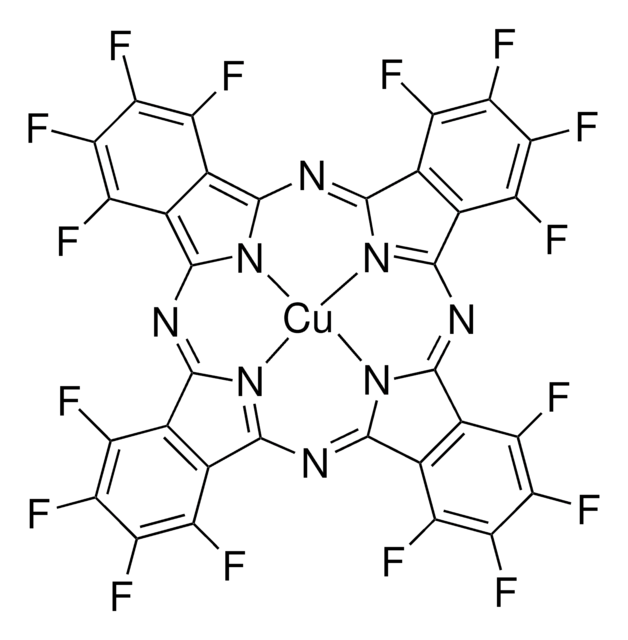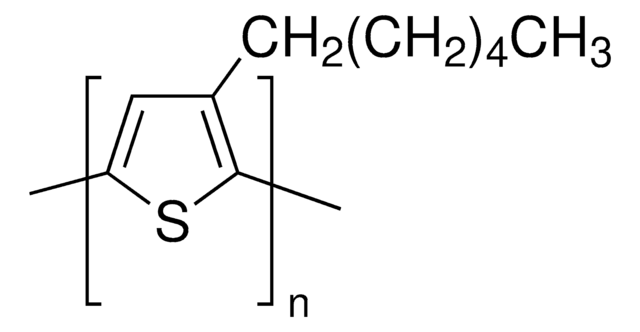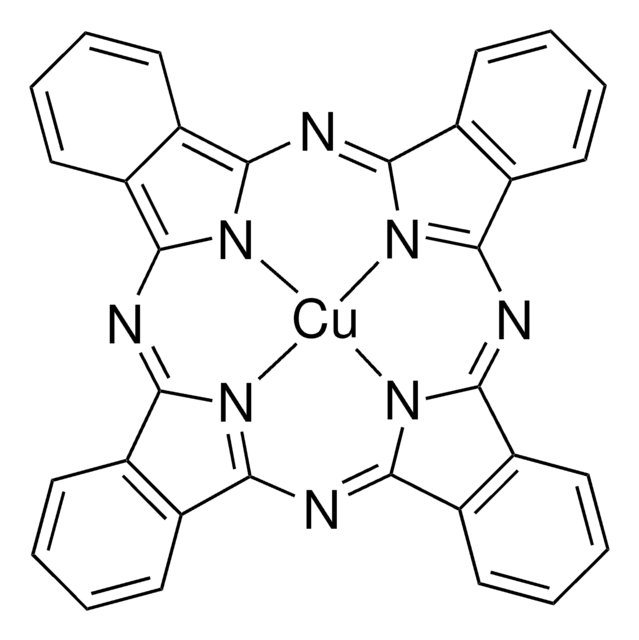698423
Pentacene
triple-sublimed grade, ≥99.995% trace metals basis
About This Item
Assay
≥99.995% trace metals basis
form
powder
quality
triple-sublimed grade
mp
372-374 °C (subl.)
solubility
organic solvents: slightly soluble(lit.)
Orbital energy
HOMO 5 eV
LUMO 3 eV
OPV Device Performance
ITO/pentacene/C60/BCP/Al
semiconductor properties
P-type (mobility=0.4-3 cm2/V·s)
SMILES string
c1ccc2cc3cc4cc5ccccc5cc4cc3cc2c1
InChI
1S/C22H14/c1-2-6-16-10-20-14-22-12-18-8-4-3-7-17(18)11-21(22)13-19(20)9-15(16)5-1/h1-14H
InChI key
SLIUAWYAILUBJU-UHFFFAOYSA-N
Looking for similar products? Visit Product Comparison Guide
General description
Application
Storage Class Code
11 - Combustible Solids
WGK
WGK 3
Flash Point(F)
Not applicable
Flash Point(C)
Not applicable
Personal Protective Equipment
Certificates of Analysis (COA)
Search for Certificates of Analysis (COA) by entering the products Lot/Batch Number. Lot and Batch Numbers can be found on a product’s label following the words ‘Lot’ or ‘Batch’.
Already Own This Product?
Find documentation for the products that you have recently purchased in the Document Library.
Customers Also Viewed
Articles
Aldrich Materials Science highlights recent developments in the applications of organic single-crystal semiconductors which allow their use in organic electronics and energy harvesting.
Flexible electronic circuits and displays based on organic active materials are future generations of products that may eventually enter mainstream electronics market.
The conductivity of organic semiconductors can be increased, and the barriers to charge-carrier injection from other materials can be reduced, by the use of highly reducing or oxidizing species to n- or p-dope, respectively, the semiconductor.
Silylethyne substitution offers an opportunity to tune solubility for application-specific needs and self-assembly for electronic performance and has yielded semiconductors with excellent device performance.
Related Content
Organic electronics utilizes organic conductors and semiconductors for applications in organic photovoltaics, organic light-emitting diodes, and organic field-effect transistors.
Our team of scientists has experience in all areas of research including Life Science, Material Science, Chemical Synthesis, Chromatography, Analytical and many others.
Contact Technical Service



